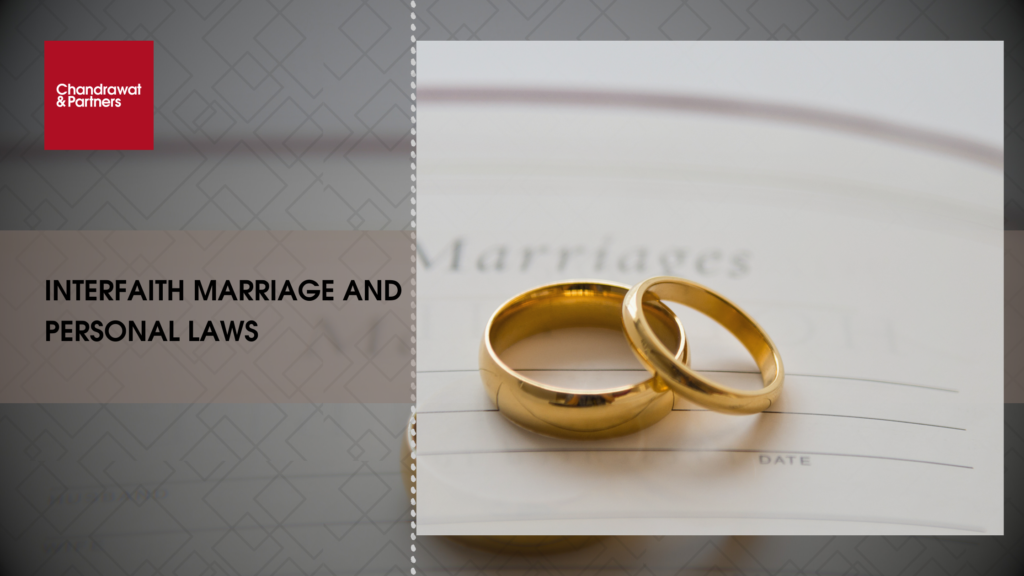
Share :
THE INTER-FAITH MARRIAGE DISPUTE
The Madhya Pradesh High Court recently delivered a significant ruling concerning the validity of an interfaith marriage between a Muslim man and a Hindu woman. The petitioners, a couple, approached the Marriage Officer under the Special Marriage Act to register their marriage. However, due to objections raised by their families, they could not appear before the Marriage Officer, leading to their marriage remaining unregistered. Subsequently, they sought protection from the court to appear before the Marriage Officer on the scheduled date for the registration of their marriage under the Special Marriage Act.
THE HIGH COURT’S STAND
In the controversial decision, the High Court refused to grant protection to the couple, stating that the marriage between a Hindu woman and a Muslim man would be considered irregular under Muslim Personal Law. The High Court of Madhya Pradesh, cited the Supreme Court’s judgment in Mohammed Salim (D) Through LRs. & Ors. Vs. Shamsudeen (D) Through LRs. & Ors, which discussed valid and invalid marriages under Muslim Personal Law. This distinction carries legal weight, as it separates valid marriages from those deemed invalid or irregular under the specific religious law. The couple, though facing opposition from their families, had initially attempted to register their marriage under the Special Marriage Act, which is a secular law applicable to interfaith marriages in India. However, due to the unresolved legal status of their union under Muslim Personal Law, the High Court was unable to provide the protection they sought.
STANCE ON INTERFAITH MARRIAGE LAWS
The court’s ruling raises significant questions about the interplay between personal laws and the Special Marriage Act, which is designed to facilitate marriages across different communities and religions. According to the court, while the Special Marriage Act allows for the solemnization of marriages without adhering to certain religious rituals, it does not legalize marriages that are prohibited under personal laws.
The court noted that the couple was neither willing to enter into a live-in relationship nor was the wife willing to convert to the husband’s religion. This observation highlights the court’s reluctance to intervene in matters where personal laws are at odds with individual choices.
LEGAL CONTROVERSY ON THE DECISION
The decision has sparked debates and concerns regarding the extent to which personal laws should govern marriages, particularly in cases where individuals choose to marry outside their respective religious communities. Critics argue that the rulings by the Hon’ble High Court of Madhya Pradesh undermines the fundamental right to marry and the principles of secularism enshrined in the Indian constitution.
Moreover, the ruling raises questions about the interpretation and application of the Special Marriage Act, which was intended to provide a legal framework for individuals to marry without religious barriers. Some legal experts argue that the court’s decision contradicts the spirit of the act and sets a precedent that could potentially restrict individual freedoms.
THE PATH AHEAD
The Madhya Pradesh High Court’s ruling has reignited the debate on balancing personal laws with constitutional principles of equality and individual freedom. While respecting religious traditions, there is an urgent need to harmonize personal laws with fundamental rights through comprehensive legal reforms. Constructive dialogue involving all stakeholders is crucial to find a middle ground that upholds both religious sentiments and individual autonomy.
This case underscores the importance of strengthening inclusive legal frameworks like the Special Marriage Act, ensuring personal laws do not infringe upon fundamental rights. Clarity in legal guidelines is vital to prevent ambiguities and uphold constitutional values in a secular society. Ultimately, the path forward lies in fostering an environment of mutual understanding and progressive thinking, where personal laws coexist harmoniously with the principles of gender equality and individual liberty..
For more information or queries, please email us at
enquiries@chandrawatpartners.com



